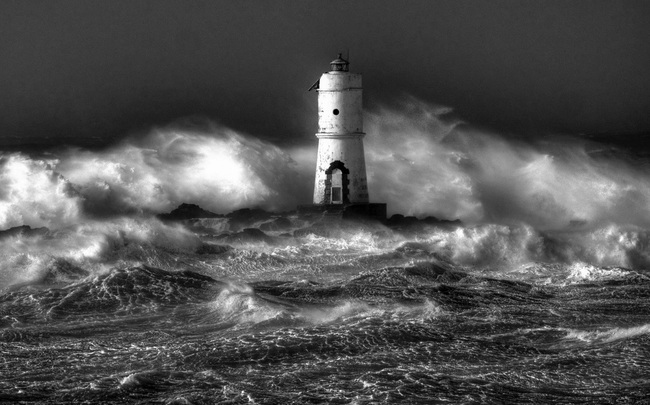Born of Seas
Hawa Y. Mire
Hawa Y. Mire
I know the sea.
Its smells are a whisper of salt and crispness,
seaweed lingering on the tongue though you've yet to eat
a thing,
solitude with a hint of aching freedom.
That which the sea gives it takes.
I know the sea and it knows me.
Coastlines are as much in my blood as are slates of rock,
dusty sand and the darkened juts of land moist to the step.
The sea is me.
The sea is my mother.
**
My mother taught me that to dry flowers, I had to hang them upside down and spray them with something that would help them keep their shape and vibrancy. I had to hang flowers upside down to stop the stalks from growing, to stop the petals from falling, to stop the flower from falling apart.
At school, I would sit atop monkey bars curl my legs around the rod handles and swing upside down in the middle of the rain. I would wait to see if the bars would hold me together, keep me from disintegrating.
So when I say my mother loved me, I mean like she did those flowers. She wanted to keep us beautifully together and on display.
I never quite learned how to be stationary. I had always belonged to myself. Despite my best intentions I didn't know how to belong to anyone else. And a part of me didn't want to know what it would feel like to keep my shape. I was always too big for my own skin and desperate to feel smaller.
At school, I would sit atop monkey bars curl my legs around the rod handles and swing upside down in the middle of the rain. I would wait to see if the bars would hold me together, keep me from disintegrating.
So when I say my mother loved me, I mean like she did those flowers. She wanted to keep us beautifully together and on display.
I never quite learned how to be stationary. I had always belonged to myself. Despite my best intentions I didn't know how to belong to anyone else. And a part of me didn't want to know what it would feel like to keep my shape. I was always too big for my own skin and desperate to feel smaller.
**
She swallowed and all I could think of was how much air she kept sucking out of the room and how no one else seemed to notice.
My mother was taking all my air.
Even as I lay there suffocating unable to catch my breath,
she couldn't see what she had done.
All I could do was deflate in front of a room of people, a steady hiss of release.
My mother was taking all my air.
Even as I lay there suffocating unable to catch my breath,
she couldn't see what she had done.
All I could do was deflate in front of a room of people, a steady hiss of release.
**
The sea my mother and I live in is full of dead things; dreams, wishes and disappointments. It's full of latent resentment, the kind that bubbles only when the water goes still. It's full of the other things people have given us: ragged fingernails shredding report cards; the caress of gloved fingers against fever burnt skin; the grimace from the librarian as my mothers’ children run screeching by; and that counselor who asked us without a moment of hesitation if our mother was violent, and gave me a look of pity in your silence.
Because she didn't understand the stone that was my face born from the rock that was my mother.
What lies in the sea is how beautiful my mother wanted me to be so that I could survive. But I was dark and fat and ugly. And she was convinced the world could not love me.
The sea is full of grief.
For the life you didn't get.
For the life I did.
Hawa Y. Mire is a diasporic Somali storyteller, writer, and strategist who focuses on themes of Blackness and Indigeniety, (dis)connection and (un)belonging. Her writing is seated somewhere between oral tradition and the written word, celestial and myth, past and present, ancestry and spirit. An MES candidate in the Faculty of Environmental Studies at York University, her research incorporates traditional Somali stories with discourses of constructed identity while pulling from archival histories of resistance and radical curatorial practises. Hawa is the co-founder of NSOROMMA, a Pan-African arts movement that cultivates creative action and innovation in African communities. Her writing can be found at Jalada Africa, The Feminist Wire, Rabble, Araweelo Abroad. More recently she has co-edited a special issue journal for the Canadian Council for Policy Alternative's Our Schools, Our Selves titled Constellations of Black Radical Imagining: Black Arts and Popular Education. Her short story series Black Woman, Everybody's Healer was long listed in 2015 for the Jalada African Literature Prize, and is currently in the process of being written as a book-length manuscript.

